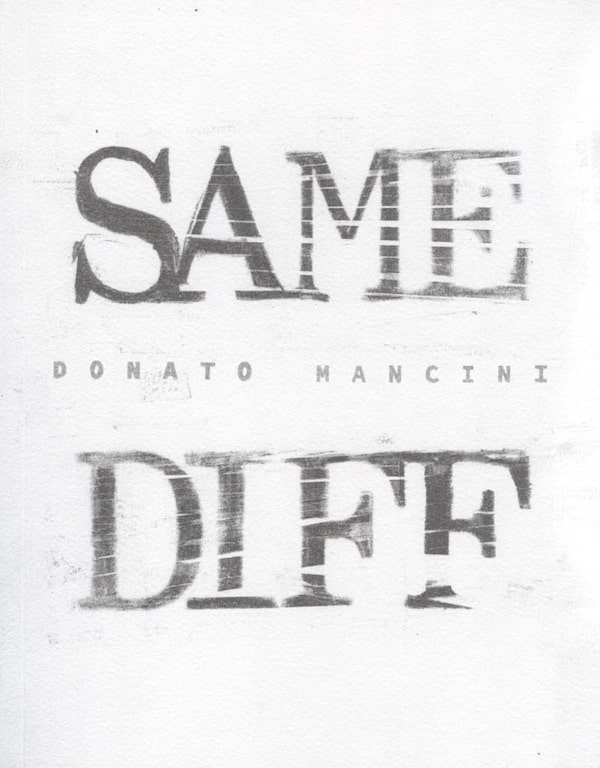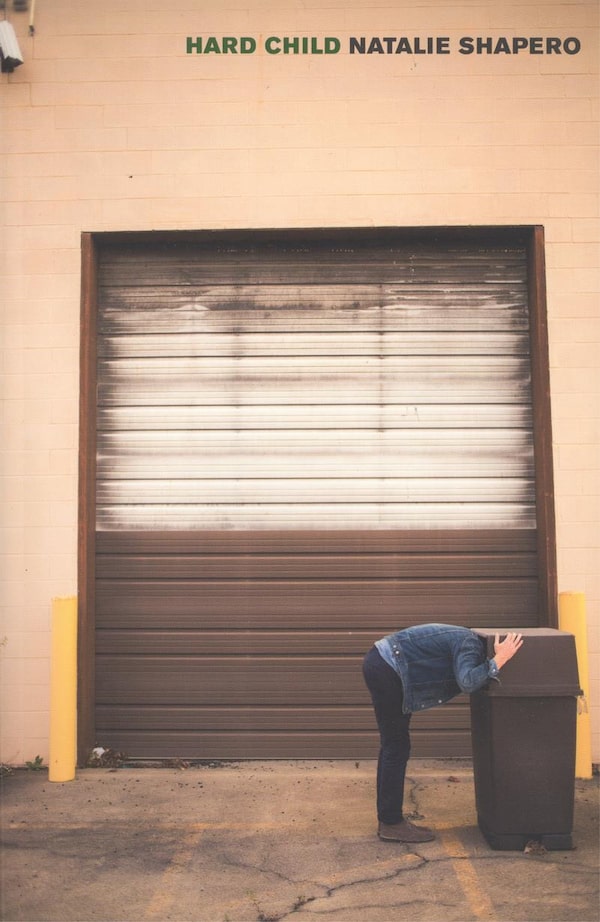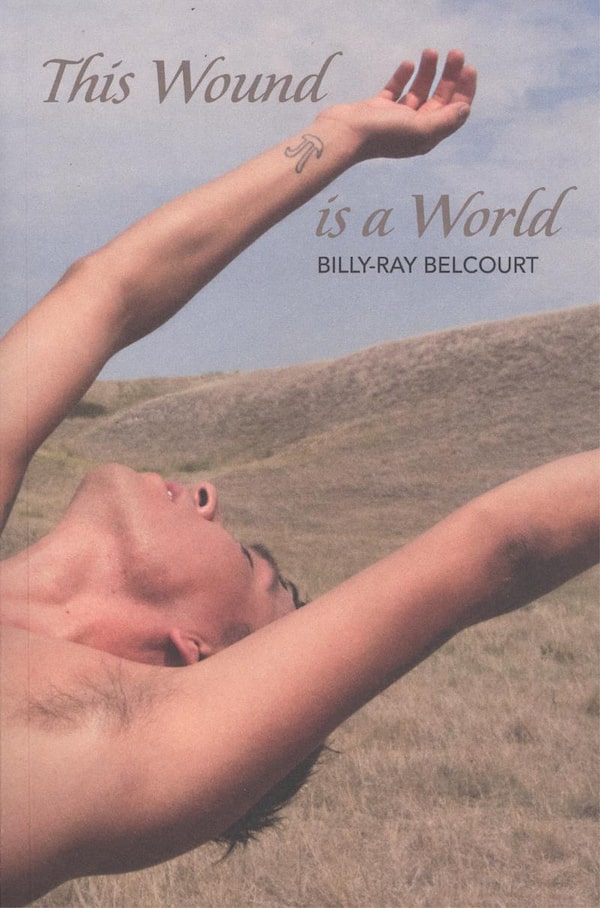
Canadian poet Donato Mancini is shortlisted for the 2018 Canadian Griffin Prize.
“Poets are among the hardest working writers,” says Kevin Williams, who would know first-hand: As the publisher of Talonbooks, he’s worked with 2017 Griffin Poetry Prize-winner Jordan Abel and 2018 nominee Donato Mancini and is familiar with the challenges faced by those who make poetry their chosen vocation.
“Jordan was on tour for 90 days all across the country the spring before the Griffin Prize,” Williams says. And yet, “he always jokes when I show him the royalty statements: ‘poetry dollars!’”
The royalty cheques for a poet are often small, which makes the Griffin Poetry Prize’s $75,000 windfall for two winners “a life-changing amount,” Williams says. “Absolutely huge.”

Layli Long Soldier is shortlisted for the 2018 International Griffin Prize.
But as poets and publishers look to celebrate the Griffin winners when they are announced on June 7, they should also take time to celebrate what has been a quantifiably great period for the genre in Canada. With book sales on the rise and “bestselling poetry” now a reality, this is poetry’s mass-market moment.
Canadian poet and Instagram sensation Rupi Kaur has much to do with this. She has been a fixture on bestseller lists for more than two years and has sold around five million copies of her two collections, Milk and Honey and The Sun and Her Flowers. Those are astonishing sales numbers for any writer, and an unprecedented amount for a poet. (“Poets in Canada are generally looking in the neighbourhood of 500 to 1,000 copies for a printing of their first book,” says Lesley Fletcher, executive director of the League of Canadian Poets.)
Even taking Kaur out of the equation, though, poetry sales in Canada were up 116 per cent between 2016 and 2017, according to BookNet Canada, which tracks sales data. (Over all, poetry makes up 1 per cent of the Canadian English-language market.) People are not only buying and reading more poetry – they’re writing and publishing it in greater quantities, too, with BookNet tracking 25-per-cent more poetry titles in 2017 than the year before.

Natalie Shapero is shortlisted for the 2018 International Griffin Prize.
“[Kaur] enhanced something that was already happening,” Williams says. “The poetry market was definitely on the upsurge and growing and we were seeing a return to poetry in the younger generation before the whole Rupi thing.”
Though BookNet doesn’t have statistics on how Griffin Prize-winning poetry collections have fared after the fact, Williams says that winning the Griffin did help readers find their way to Abel’s book, which has now sold 3,000 copies.
“Prize lists and recommendations and reviews are a huge thing,” Fletcher, of the League of Canadian Poets, says. “Even if you go into a library or a bookstore, not everybody who’s doing the buying feels confident picking out poetry on their own – it’s not something everybody specializes in.”
But turning Canadians into more confident poetry readers is one clear effect of having a bestselling poet in our midst. “Poetry calls for a lot of attention,” Fletcher says. “Maybe we assume it’s not necessarily for us if we don’t immediately fall in love with it. But in truth, I think it’s one of the more accessible art forms and I think people like Rupi Kaur are making that clear.”

Billy-Ray Belcourt is shortlisted for the Canadian Griffin Prize.
Ian Williams, a Griffin Prize nominee in 2013 and a member of this year’s jury along with Sarah Howe and Ben Lerner, believes there is room for both the Instagram-poet crowd and more traditional platforms such as the Griffin Prize.
“There are poets on the Griffin Prize list who are young, and poets who have been working away for decades with a devoted following, but who may not have had as large a platform as the Griffin Prize would allow,” he says. “So something like Instagram success might launch someone into visibility and then something like the Griffin Prize also launches people into visibility.”
Some of that visibility, for example, occurs on the evening before the Griffin Prize ceremony when the nominated poets, each one already guaranteed $10,000 as finalists, give a public reading in Toronto that annually sells out a 1,000-seat theatre.

Tongo Eisen-Martin is shortlisted for the International Griffin Prize.
Beyond the industry’s number-crunching and half-boon/half-disruption of Instagram, Williams wants readers to remember poetry’s important role as a salve for navigating an increasingly distracted world.
“Right now, one of its great benefits is that it gives us a kind of stillness among so much noise and bombardment of aggressive rhetoric,” he says. “It’s a certain kind of reading – a kind of reading that requires time and patience and a kind of extension of our powers towards someone else’s experience. It cultures us, and I think that kind of stillness is hard to find now.”
Becky Toyne is the Should I Read It? columnist for Day 6 on CBC Radio and a regular contributor to Globe Books.

Susan Howe is shortlisted for the International Griffin Prize.
Here are the nominees for the 2018 Griffin Poetry Prize (and a choice line from each poet):
International Griffin Prize
Tongo Eisen-Martin for Heaven Is All Goodbyes (City Lights)
“I guess we’re all city people now / And we roam around carving ‘still alive’ in people’s foreheads / (preaching gently)”
Susan Howe for Debths (New Directions)
“A work of art is a world of signs, at least to the poet’s / nursery bookshelf sheltered behind the artist’s ear.”
Layli Long Soldier for Whereas (Graywolf Press)
“But / is the small way to begin. // But I could not. // As I am limited to a few / words at command, such as wanblí. This / was how I wanted to begin, with the little / I know. // But could not.”
Natalie Shapero for Hard Child (Copper Canyon Press)
“I don’t want any more of what I have. / I don’t want another spider plant. I don’t // want another lover.”
Canadian Griffin Prize
Billy-Ray Belcourt for This Wound Is a World (Frontenac House)
“grieve is the name I give to myself / I carve it into the bed frame. / I am make-believe. / this is an archive. / it hurts to be a story.”
Aisha Sasha John for I have to live. (McClelland & Stewart)
“I do. / I did it. / I did. / I had to. / I have to. / I have to live.”
Donato Mancini for Same Diff (Talonbooks)
“Freedom is the freedom to choose. / Freedom is a right. / The cage is already open; you only have to walk out.”